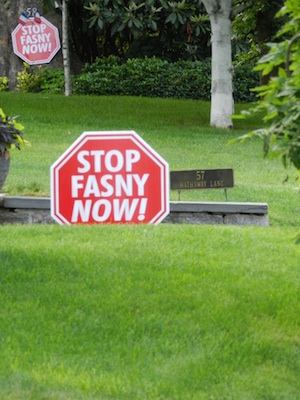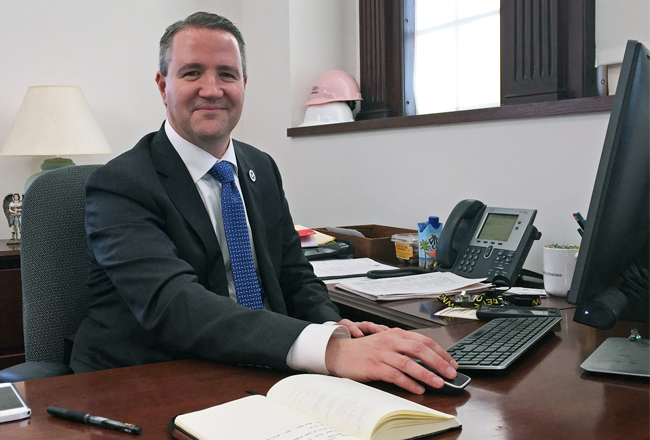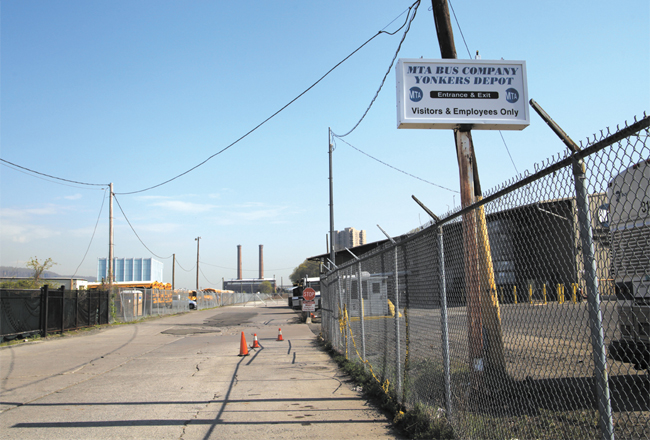A proposal from the French-American School of New York (FASNY) to build a school in White Plains, approved last month, may be heading back to court.

The Gedney Association, a group representing the Gedney Farms neighborhood that has long opposed the project, filed an Article 78 lawsuit in New York State Supreme Court in White Plains on Tuesday, challenging the city”™s review of the proposal.
In November, the White Plains Common Council voted 5-2 in favor of a resolution approving a site plan from FASNY to build a 640-student school for grades 6 through 12 on a parcel of a 129-acre property previously home to the Ridgeway Country Club.
The Gedney Association”™s 48-page court filing challenges that approval on a number of points. The complaint argues that the common council did not give the project the required “hard look” environmental review. It also claims that one of the conditions of the approval, which placed a moratorium on further school development on the property’s other parcels, represents unlawful “segmentation” of the environmental review process for the property.
The Gedney Association is represented by Long Island attorney Howard D. Avrutine. Its complaint calls FASNY”™s application to the city an “absurdity” and an attempt to “stuff ten pounds of potatoes into a five pound bag.” The group asks the court to annul the common council”™s approval of FASNY”™s application and enjoin FASNY from taking any steps toward construction.
The case represents just the latest lawsuit tied to the seven-year review of FASNY”™s proposal. It was in 2011 that FASNY proposed a plan to consolidate its three Westchester campuses into one new facility on the Ridgeway Country Club. FASNY bought the property in 2010 for $11 million. The original $60 million plan for the school would have covered students from pre-school through 12th grade and included a 78-acre public park maintained by the school.
The project faced steady opposition from some city residents, led by the Gedney Association. The association represents about 450 households in the Gedney Farms neighborhood near the golf course.The group first challenged the city”™s review of the project in court in 2014, but its Article 78 appeal was ruled not legally ripe by State Supreme Court Judge Joan B. Lefkowitz, as the city had not yet reached a decision on the FASNY proposal.
The next legal showdown came between FASNY and the city. The school challenged the city”™s review process in state Supreme Court in September 2015, a month after the common council voted down a motion to close a part of Hathaway Lane near the property. The road closure was required as a mitigation measure in an environmental impact statement previously approved by the council.
In April 2016, Lefkowitz, again reviewing a FASNY-related case, denied a motion from the city to dismiss the school”™s lawsuit. Lefkowitz accused the council of waging a “war of attrition” through a protracted review process.
Five months later, the common council approved a settlement agreement with the school. The city would review a reduced plan from FASNY, with oversight from the state court.
The scaled-back plan decreases the number of students from the original 950 to a maximum of 640 and limits students to grades six through 12. Hathaway Lane, a previous sticking point, remains open.
The common council”™s approval came with some additional stipulations, including a 15-year moratorium on any expansion of school facilities on three parcels of the property not used by the campus.
The lawsuit from the Gedney Association points to the moratorium agreement as evidence of an unlawful review process.
The complaint argues that the common council “engaged in segmentation by failing to consider the cumulative effect of all potential stages of development” outside of the parcel FASNY is approved to build on.
Since FASNY”™s original plan was to consolidate all of its schools onto one campus, the complaint argues, “it can reasonably be expected that further applications to develop on the remaining parcels will be made.”
Among other contentions, the lawsuit also argues the review did not give the required “hard look” to the traffic and environmental impact of FASNY’s revised plan.
In a statement, FASNY spokesman Geoff Thompson said the lawsuit is “yet another waste of time, resources and taxpayer money.”
“FASNY”™s application for a school has been the most exhaustively studied in city history, which resulted in a significantly reduced compromise plan. To suggest that the environmental review in any way fell short is absurd.”
A spokesperson for White Plains Mayor Thomas Roach’s office said the city does not comment on pending litigation.

















